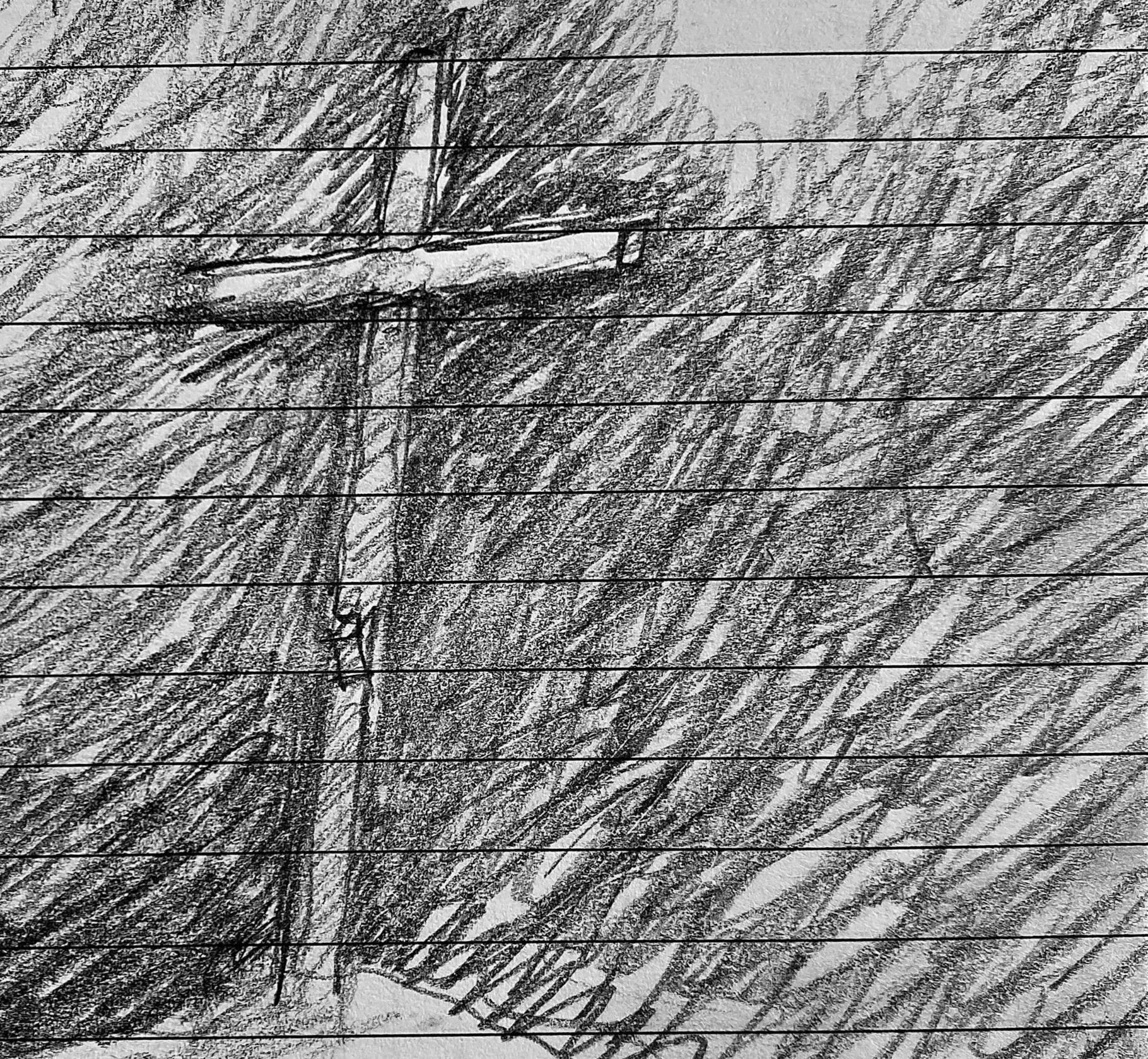The Crawler
When I survey
the wondrous cross,
I whack my bloody knee, again -
on another jutting stone.
My eyes squint, and my head falls
to watch
an escaped tear land,
poised on dry dirt.
A ball of sorrow; I see it
wobble.
Like me.
my arms shake and ache.
My knees are raw and sore.
I just can't get there
To my prince of glory,
died.
The crawler.
On hands and knees, with
frequent stops;
a slow, pained, self-
sabotaging -
Journey.
At least I can't boast
(though God knows I try;
Covered in dirt I am yet,
vain.)
I nurse my regrets,
At the foot of the cross
And pour contempt on my
Own damned thorns
Yet, his head, his hands, his feet -
Weep in love’s shedding.
Rolling off the tree, etching the dirt,
gathering speed.
Sweeping up my lone tear
of sorrow.
A river now, of sorrow and love
and in it, I am taken.
I am a present not too small
For love composed
so amazing.
And even should the realm
of nature be all mine
I could naught but plead
To lay me down
Where love and sorrow meet
At the foot
of the divine.
This poem is a pastiche of borrowed words from an old hymn, called, When I survey the wondrous cross. I grew up singing these old hymns. Back then, I was mostly bored by them and spent my time trying to pick out the harmonies, which at least gave me something to do. Now, I rarely sing them and when I do sing, or hear one—like When I survey, or Nearer, still nearer, or Amazing grace—a great nostalgia washes over me. I feel somehow connected with humans from centuries ago, who express a thing both weighted in time and place, yet eternal and timeless. My voice somehow joins with theirs and keeps pace into eternity. It's strange how meanings from your past catch up with you, sweeping through you, and past you, into the future.
But, to the poem. I'm not sure there was much at all "wondrous" about the cross. As an instrument of torture, you can't get much worse. Nonetheless, I've often felt inadequate to the whole Romanesque scenario: too removed from the pain of it all; too alien to the cultural barbarity; too familiar with its storied repetition Easter after Easter. Or, despite assuming its historicity, not quite grasping its reality for me, for today. I just can't quite get there, to the prince of glory, died. It feels vain trying, or meaningless, or null and void, or just…painful.
I guess that's the point, though. As we watch and wait; as the earth itself waits holding its breath for the new dawn—none of us can quite get there. In that, at least, we're all the same. We try this way, and that. Take up this ideology, or that. Pick up this weapon, or that. Scream out ugly words, or remain silent. Ignore everything, or nothing. Pretend and hide, this, or that. We're no different, you and I.
Together, we wait for a new day. One where sorrow meets love, at the foot of the divine. A day when the sun shines on all our faces. One where no one is without a home or a hearth. A day when lambs and lions share sustenance, and trees no longer fall in the forest. We wait for the dawn to break on a day when all human hearts become entangled in a love greater than our own. A day with no violence or bloodshed; no terror, nor dictators. No wounding, no tears.
And so, as we wait for tomorrow, we sing. Not songs of inadequacy, nor despair. Songs of hope. It is time, as the song says, "to sing into existence, every living thing*". Those old hymns, the old gospel songs, the old songs of the earth—those human cries of lament now rewritten—are eternal human cries for light, love and life. These are cries that break into the future, seen long ago in a body no longer on a cross, and drag it back into our now; that eternal glimpse of renewal in the resurrection, of everything.
Sing on.
